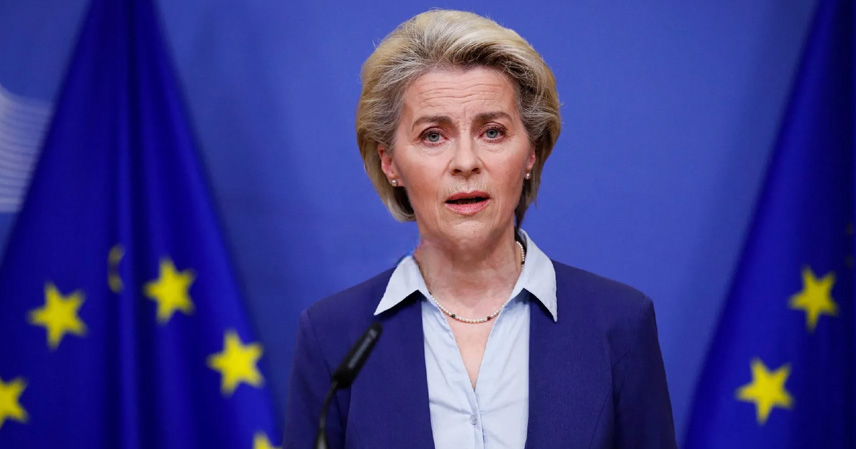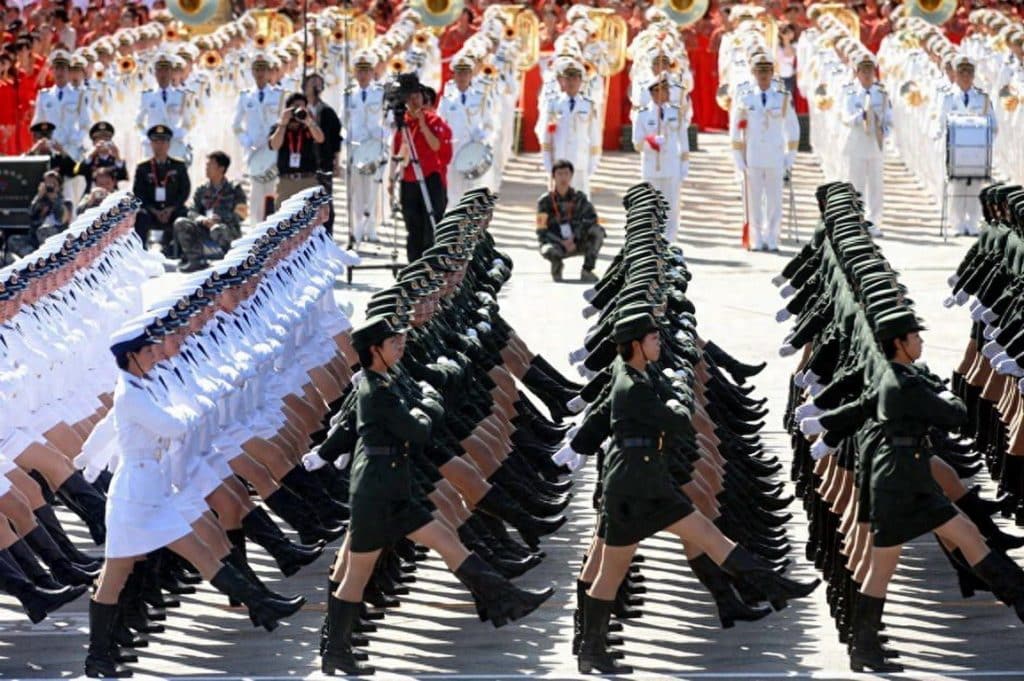European Commission President Ursula von der Leyen has survived two no-confidence motions in the European Parliament on Thursday, October 9, fending off challenges from both far-left and far-right groups.
According to AFP, both motions accused her of a lack of transparency and criticized her trade policies, but neither reached the required 361 votes for approval.
The far-right “Patriots” group’s motion received 179 votes in favor against 378 opposed, with 37 abstentions. The far-left “Left” group’s motion earned 133 in favor, 383 against, and 78 abstentions—making clear that von der Leyen still commands majority support within Parliament.

Following the vote, von der Leyen expressed gratitude on social media:
“I am deeply thankful for today’s strong show of support. My team will continue to work closely with the European Parliament to tackle the challenges facing Europe.”
Turning to the Global South
Only hours after surviving the votes, von der Leyen shifted her attention from domestic politics to global diplomacy, hosting the second Global Gateway Forum in Brussels.
The event drew more than a dozen leaders from the Global South, including Rwanda’s President Paul Kagame, Angola’s President João Lourenço, and South Africa’s President Cyril Ramaphosa.
In her opening speech, von der Leyen warned that the world was entering an era of “transactional geopolitics”:
“Tariffs and trade barriers are returning to the geopolitical chessboard. Export controls are being weaponized. Interdependence is turning into vulnerability. The EU’s answer is partnership—built on shared interests and respect for sovereignty.”
“The Smell of Money” and the Politics Behind It
The Global Gateway initiative, launched in 2021 as the EU’s flagship foreign investment program, has mobilized over €306 billion ($355 billion) for infrastructure projects in clean energy, transport, and digital connectivity worldwide.

As President Ramaphosa quipped during his remarks:
“When I entered the room, I could smell money.”
More than 150 European corporate representatives attended the forum, highlighting the commercial magnetism of the plan.
Among the key projects showcased were the Lobito Corridor Railway, designed to connect Africa’s mineral-rich regions with Atlantic ports, and a trans-Mediterranean subsea communication cable linking Europe and North Africa.
Between Partnership and Projection
Critics, however, remain skeptical.
Frank Vanaerschot, head of the NGO coalition Counter Balance, cautioned that several projects risk serving European corporate interests first, while overlooking local environmental and social needs. He also warned that the loan-based funding model could deepen debt burdens for developing nations.
Such criticism underscores the fine line between partnership and projection in the EU’s approach. While Brussels markets Global Gateway as a “values-based alternative” to China’s Belt and Road Initiative, the perception in parts of the Global South remains that Europe’s money comes with strategic strings attached.

Analysis: Power, Image, and the EU’s Balancing Act
Von der Leyen’s dual performance—fending off political rebellion at home and courting influence abroad—captures the EU’s broader dilemma.
Internally, she faces growing pressure from populist forces questioning the bloc’s legitimacy. Externally, the EU struggles to rebrand itself as a trusted development partner, not merely an investor seeking geopolitical returns.
Her survival in Parliament shows that Europe’s political center still holds, but the battle for credibility in the Global South may prove far tougher than any vote in Brussels.



